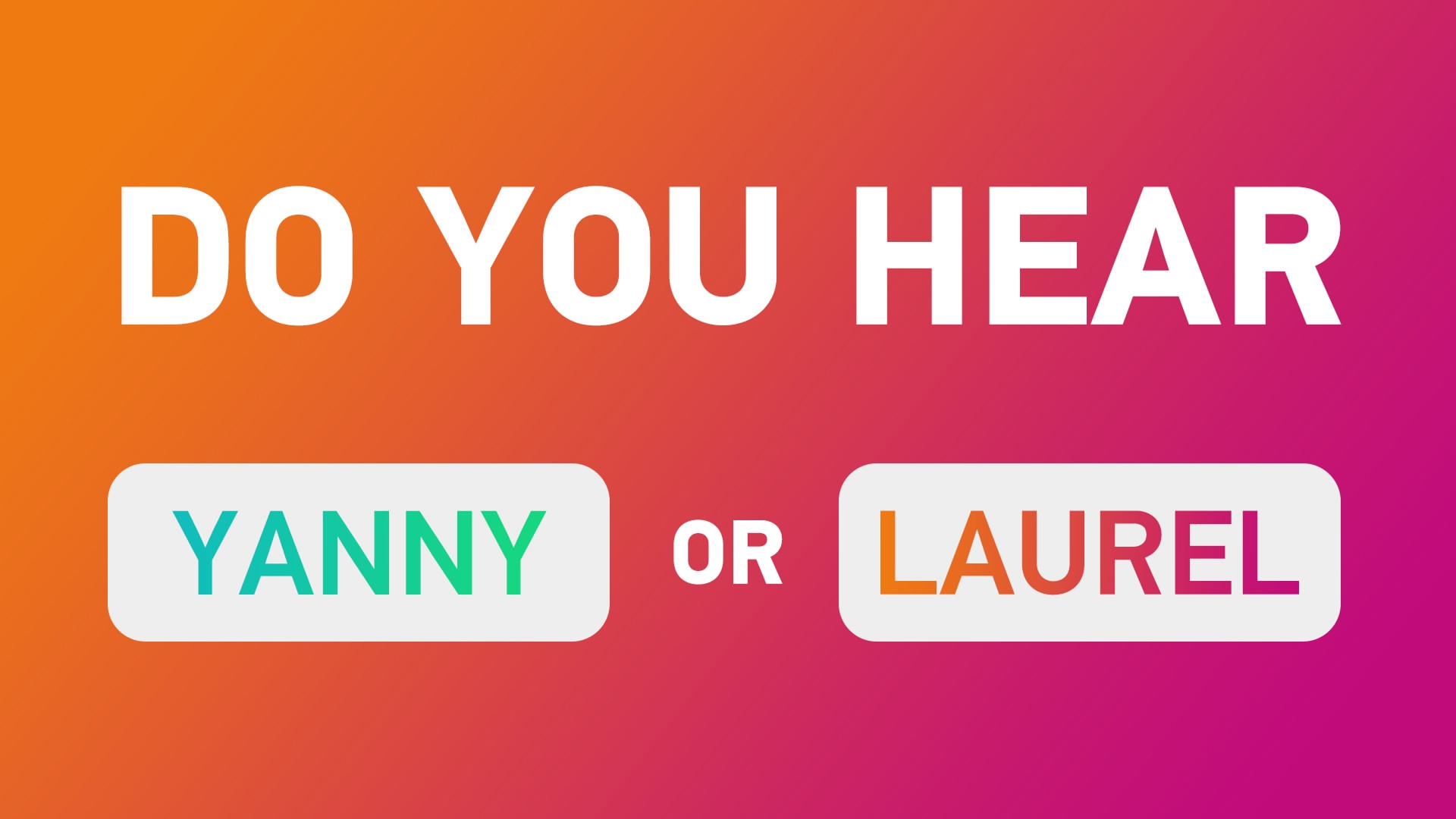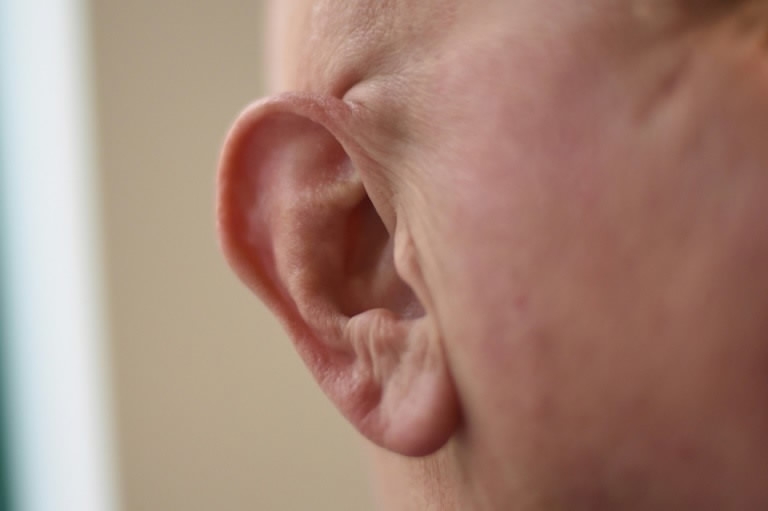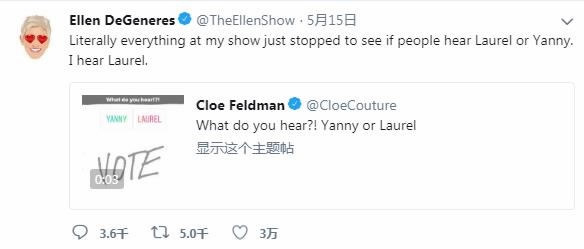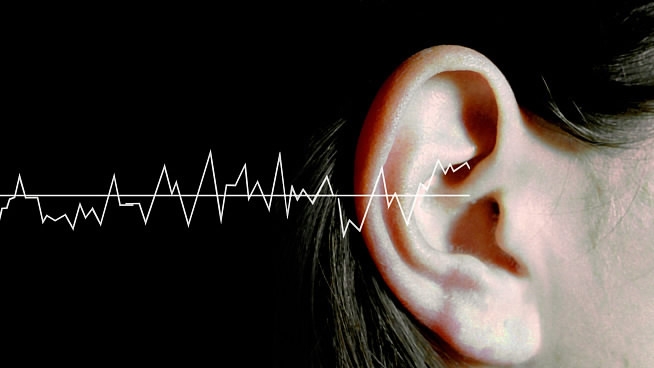
Tech & Sci
15:57, 17-May-2018
Yanny or Laurel? Audio clip ignites hot debate
CGTN
03:34

Do we hear the same word?
A short audio clip online sparked a social media debate on Wednesday about whether the word being heard is “Yanny” or “Laurel”, just like the dress debate which happened five years ago about whether it was blue, black, white or gold.
The clip was first published online by a US high school student who recorded the seemingly innocuous audio from a vocabulary website while doing a project for his school in the US state of Georgia.
It aroused a debate among his peers who split into two camps of Yanny and Laurel. A friend of him posted it on Instagram and created a poll that quickly went viral, triggering a mass debate that has spread internationally.

Yanny or Laurel? A simple looped soundbite with just two syllables has ignited an internet meltdown. /AFP Photo
Yanny or Laurel? A simple looped soundbite with just two syllables has ignited an internet meltdown. /AFP Photo
Celebrities’ disagreement
Input from celebrities has inflamed the frenzy: "It's Yanny," horror writer Stephen King said in a deadpan tweet.
"It's so clearly Laurel," quipped supermodel Chrissy Teigen. "I can't figure out how one would hear Yanny."
“Literally everything at my show just stopped to see if people hear Laurel or Yanny. I hear Laurel,” said Ellen DeGeneres, host of the talk show The Ellen DeGeneres Show, while New Age musician Yanni was in the Yanny camp.

The host Ellen DeGeneres tweeted that she heard Laurel. /Twitter screenshot
The host Ellen DeGeneres tweeted that she heard Laurel. /Twitter screenshot
Explanations for the 'sound illusion'
Some speculated online that the age of the listener might determine what was heard, while others changed the pitch to alter results.
“Age can play a role, as well as expectations,” said Alicia Spoor, president of the Academy of Doctors of Audiology. However, she still heard “Laurel” when she changed the pitch.
The “secret is frequency … but some of it is also the mechanics of your ears, and what you’re expecting to hear,” said Lars Riecke, an assistant professor of audition and cognitive neuroscience at Maastricht University.

Some said the frequency and age may be the causes lead to different words that people hear. /VCG Photo
Some said the frequency and age may be the causes lead to different words that people hear. /VCG Photo
Some attributed it to the quality of the recording and the resonance of speech sounds.
“This is a relatively low quality signal that is played over a variety of devices and the sound was developed to be on a perceptual border,” said Todd Ricketts of Vanderbilt University Medical Center’s Hearing and Speech Sciences Department.
“For example, with a full-range higher quality speaker, I clearly only hear Laurel, but over my computer speakers, I clearly only hear Yanny,” Ricketts said.
Spoor said the complicated answer has to do with resonance of the speech sounds. “When you say the word Yanny and Laurel, the waveform looks very similar for the first band of energy resonance. However, there is a significant difference in the second and third resonances of the two words, which is how humans interpret the words.”
While the majority of listeners hear beyond doubt one of the two words, few waffle between the two.
Source(s): AP
,AFP

SITEMAP
Copyright © 2018 CGTN. Beijing ICP prepared NO.16065310-3
Copyright © 2018 CGTN. Beijing ICP prepared NO.16065310-3